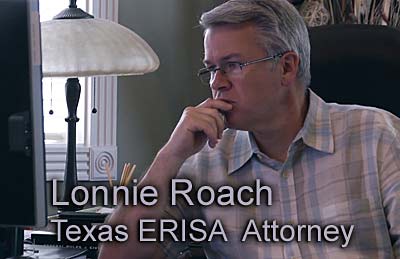Medicare Hospital Coverage – Avoid Surprise Expenses
Will Medicare pay for my hospital stay?
Author: Attorney Lonnie Roach
Updated: 1/25/2023
If you are kept in the hospital overnight for observation Medicare may not cover the bill.
You need to know how to protect yourself and avoid expensive medical charges by asking a few easy questions.

If you are insured by Medicare and need to spend the night your hospital expenses may not be covered. Ask a few simple questions and avoid surprise expenses.
Many patients who spend the night at a hospital under observation due to a sudden injury or other medical emergency experience sticker shock when they receive their bill weeks later.
The key to understanding what services are covered by Medicare and how much you will pay for hospital services like X-rays, drugs, and lab tests is knowing your hospital status – whether you are in “inpatient” or an “outpatient.”
Inpatient
You are an inpatient when you are formally admitted to the hospital under a doctor’s authorization.
Outpatient
The hospital considers you an outpatient if you receive emergency room services, observation services, outpatient surgery, lab tests, x-rays, or any other hospital services without a doctor’s written order to admit you to the hospital as an inpatient – even if you spend the night in the hospital.
Medicare.gov describes observation services as “hospital outpatient services given to help the doctor decide if the patient needs to be admitted as an inpatient or can be discharged.
Observation services may be given in the emergency department or another area of the hospital.” The decision to admit a patient to the hospital is complex and based on a doctor’s judgment and the needs of the patient for hospital care. Generally inpatient admission is considered necessary when the patient is expected to spend two or more midnights in hospital care. This requires an order from the patient’s doctor.
Original Medicare Part A does not cover an overnight hospital stay for an outpatient, but Medicare Part B will help cover medically necessary doctors’ services and other health care services or supplies an outpatient receives while in the hospital.
Medicare Part B typically covers 80% of the cost of most services received after the yearly deductible ($240 in 2024) is met. You are responsible for paying the remaining 20% coinsurance for each separate medical service you receive in the hospital such as emergency room care, observation care, x-rays and lab tests. You also pay coinsurance for any time spent with a physician while in the hospital, even if the physician was not your primary doctor or surgeon.
Social Security and Medicare are a lifeline to those who are disabled. If you are disabled and have had difficulty obtaining Social Security benefits contact the attorneys at Bemis, Roach, and Reed today for a free consultation. We can help you get the benefits you need. Call 512-454-4000 and get help NOW.

Experienced Long-Term disability lawyer Lonnie Roach will fight for you. Get the benefits you deserve.
If you are an outpatient in the hospital receiving observation services, or if you are admitted to the hospital as an inpatient and the hospital changes your status to outpatient, they must notify you in writing.
The Federal Notice of Observation Treatment and Implication for Care Eligibility Act (NOTICE Act), passed on August 6, 2015 requires hospitals to provide notification to individuals receiving observation services as outpatients for more than 24 hours explaining the status of the individual as an outpatient, not an inpatient, and the implications of such status.
Here are some examples of situations where a patient spends the night in the hospital and how Medicare will pay.
- A patient goes to the Emergency Room and is formally admitted to the hospital with a doctor’s order. The patient is considered an outpatient until formally admitted as an inpatient based on a doctor’s order. Medicare Part A pays for the inpatient hospital stay. Medicare B pays for doctors’ services.
- A patient goes to the Emergency Room and is then sent to the intensive care unit (ICU) for close monitoring. The patient’s doctor expects the patient to be sent home the next day. The condition resolves and the patient returns home the next morning. The patient is considered an outpatient. Medicare A pays nothing and Medicare B pays for doctors’ services.
- A patient goes to the Emergency Room complaining of severe chest pain, and the hospital keeps him overnight for 2 nights. One night is spent under observation and the doctor writes an order for inpatient admission on the second day. The patient’s status is outpatient until formally admitted as an inpatient based on the doctor’s order and becomes inpatient following such admission. Medicare A pays for the inpatient hospital stay. Medicare B pays for doctor services and hospital outpatient services such as the emergency room visit, observation services, lab tests and EKGs.
- A patient undergoes outpatient surgery at a hospital and is kept overnight for high blood pressure. His doctor doesn’t write an order to admit the patient as an inpatient and the patient goes home the next day. The patient is considered an outpatient. Medicare A pays nothing. Medicare B pays for doctor services and hospital outpatient services such as surgery, lab tests, and intravenous medicines.
- A doctor writes an order for a patient to be admitted as an inpatient, and later the hospital changes the patient’s status to outpatient. The doctor must agree, and the hospital is required to notify the patient in writing (while they are still a hospital patient) that their status has changed. The patient is considered an outpatient. Medicare A pays nothing. Medicare B pays doctor services and hospital outpatient services.
Medicare does not cover all costs for outpatient hospital stays and patients receiving observation care as outpatients may pay more out of pocket than those admitted as inpatients.
Also, Medicare only covers follow-up care at a skilled nursing facility if the patient has been an inpatient for a minimum of three nights. A patient who is admitted for observation and kept overnight for an injury that requires rehabilitation – for example, a broken leg – could be subject to high out-of-pocket costs. If you are not enrolled in Medicare Part B, but have health insurance through a Medicare Advantage plan (Medicare Part C) or a Medigap plan, your costs for inpatient or outpatient hospital services may be different and you need to check with your plan.
You can be an informed, proactive patient and avoid many unanticipated medical fees. If you are hospitalized, remember to ask the following questions:
- Am I inpatient or observation?
- How long are you keeping me?
- Will I need specialized rehab or skilled nursing care after I’m discharged?
It’s highly important that you communicate with all your hospital staff and keep informed about your present medical classification. A simple and seemingly unimportant hospital designation can make a huge difference the final medical charges you are personally responsible for.
Social Security Disability beneficiaries are automatically enrolled in Medicare after two years. If you or someone you know is trying to qualify for disability benefits or has been denied disability it is important that you do not give up. Most are initially denied. If you wish to apply for disability benefits or have been denied, contact the attorneys at Bemis, Roach and Reed for a free consultation. Call 512-454-4000 and get help NOW.
Medicare and Social Security Disability Insurance
What is the Medicare Penalty?
SSDI and Enrolling in Medicare- The Two Year Waiting Period (Part 1)

Your Free Initial Consultation
At Bemis, Roach and Reed, if we can't help you, we will try to find the right attorneys for you.
We offer each of our prospective clients a free no obligation one hour phone or office consultation to see if we can help you and if you are comfortable with us. We know how difficult a time like this can be and how hard the decisions are. If we can be of assistance to you and help you find a solution to your issue we will even if that means referring you to another attorney.
Or simply call
512-454-4000
to schedule your
Free Consultation
Let's get you Started:
If you could provide us with some basic information about your claim we will get right back with you with a free case evaluation and schedule your Free Consultation Today.








